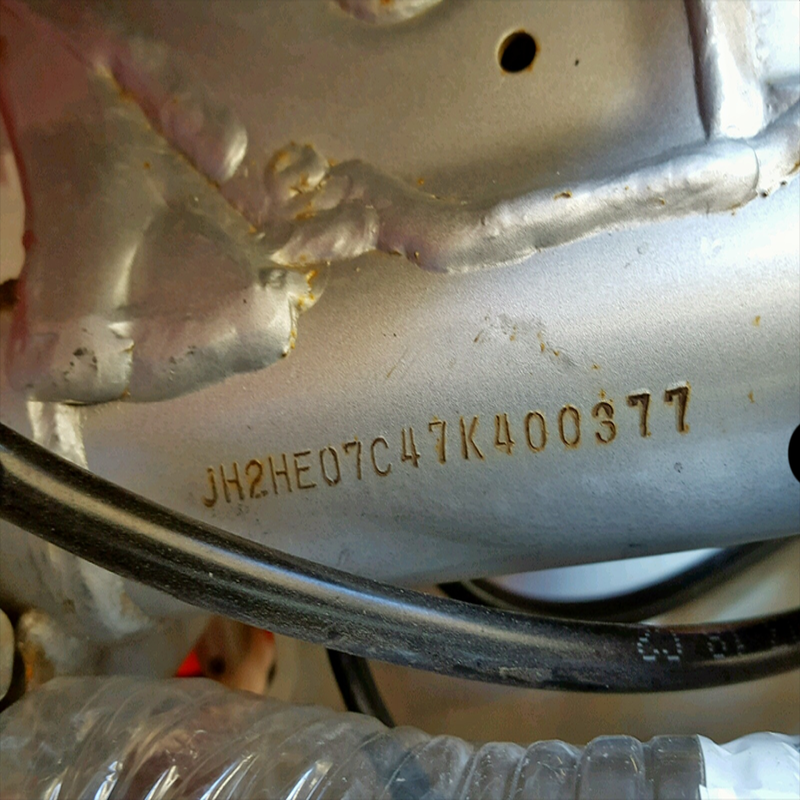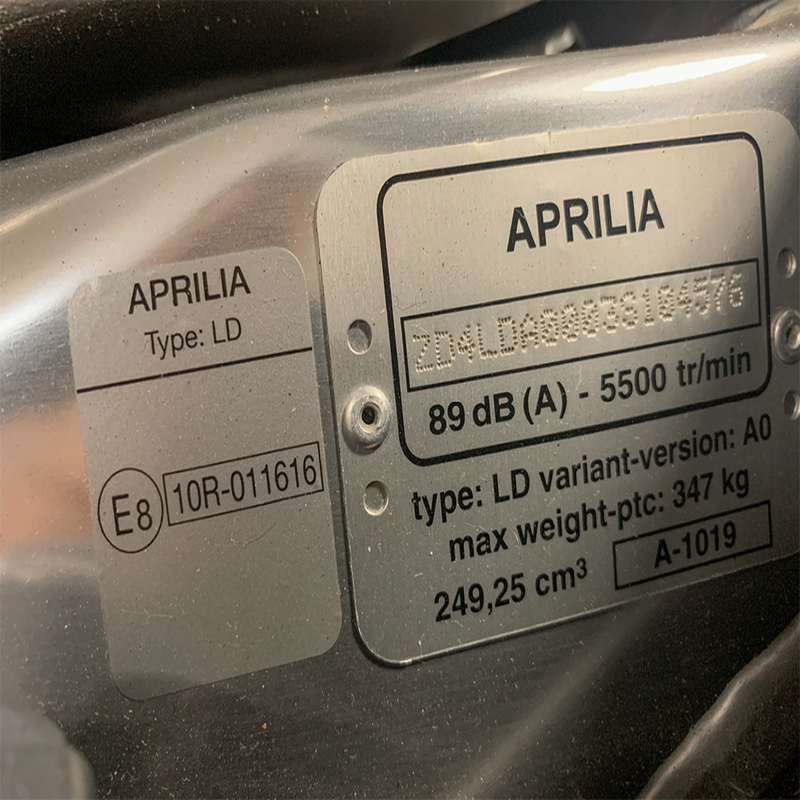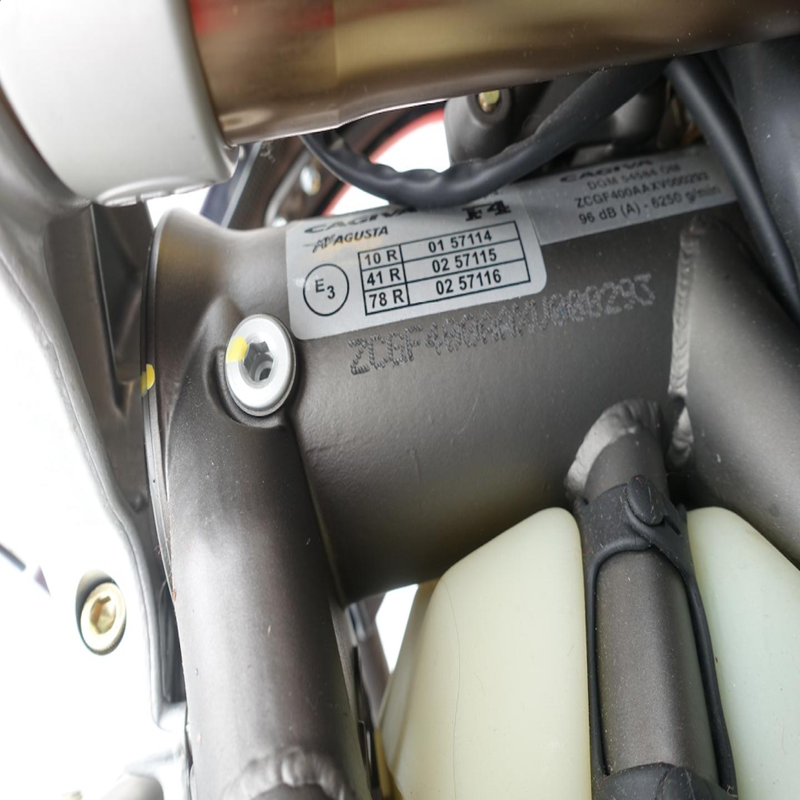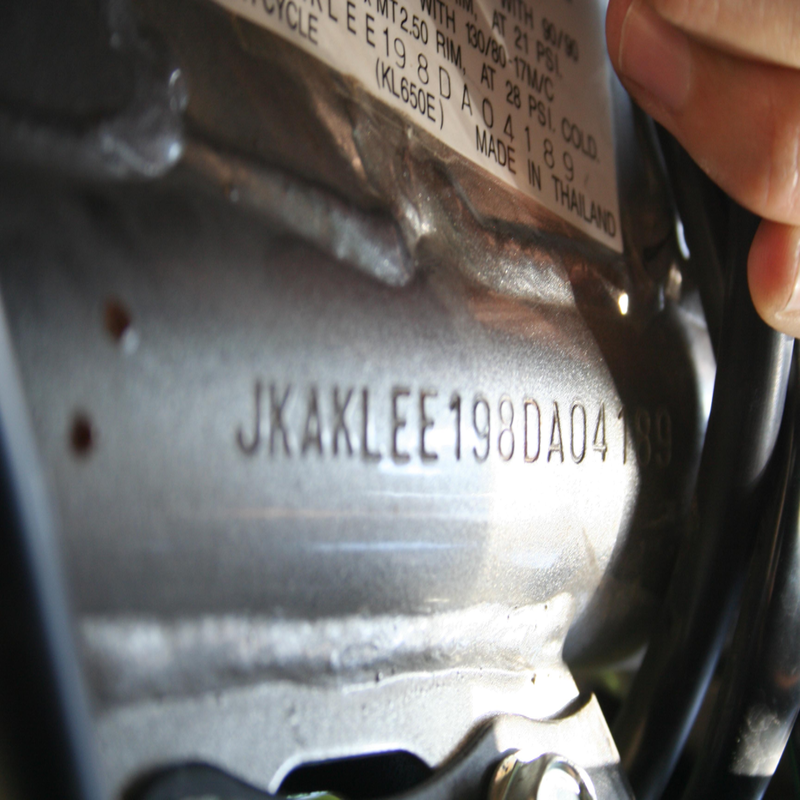In today’s fast-paced world, purchasing a motorcycle is a significant commitment. Whether for commuting, leisure, or sports, you want quality and safety in your investment. An essential step in the buying process is a Motorcycle VIN (Vehicle Identification Number) check. Fortunately, many options exist to carry out a free VIN check. This guide aims to walk you through the essentials of a motorcycle VIN check, exploring the importance, resources, and steps involved.

Understanding the Motorcycle VIN
The Vehicle Identification Number is a unique code. It acts as a fingerprint for your motorcycle, distinguishing it from others. The VIN consists of 17 alphanumeric characters assigned at the time of manufacturing. Each character or sequence conveys specific information about the motorcycle. Knowing how to read it can save you from making a risky purchase.
Components of the VIN
The VIN comprises various parts, each serving a unique purpose. The first three characters represent the World Manufacturer Identifier (WMI). This tells you the manufacturer of the motorcycle. Consequently, you can discern the reliability and characteristics of that brand. The subsequent characters provide details about the motorcycle’s model, engine type, year, and place of manufacture.
The final part is a check digit, which validates the code. This specific number helps authorities confirm the VIN’s authenticity. Using this information, you can ascertain details about a motorcycle’s history. For example, some motorcycles might have been involved in accidents while others may have clean records.
Importance of VIN Checks
Performing a VIN check is crucial for multiple reasons. First, it helps you uncover the motorcycle’s history, including accidents and service records. This data is essential because it gives insight into how the motorcycle has been treated. A well-maintained motorcycle is generally a safer investment than one with a history of issues.
Secondly, a VIN check can assist in confirming ownership. If you’re buying from a private seller, ensure the seller is the legal owner. A VIN check allows you to verify whether the seller has the right to sell the motorcycle. This is particularly important in preventing theft, allowing you peace of mind during your purchase.
Where to Find Free VIN Check Resources
A variety of online platforms provide free VIN checks. Knowing where to look can save you time and frustration. Various websites offer options for such checks, including governmental and nonprofit organizations. Performing a check through these resources ensures you receive the most reliable information.
Government Resources
In many countries, government platforms provide reliable vehicle history checks. For example, the National Highway Traffic Safety Administration (NHTSA) allows users to look up recalls and complaints. You can enter the VIN to see if any safety issues have been reported. This resource is invaluable, especially when considering older motorcycles, which may have been subject to regulatory changes.
Additionally, local departments of motor vehicles may offer VIN checks. While the information might be limited, it typically includes registration details and title status. These platforms often have user-friendly interfaces designed for easy navigation. Thus, if you’re uncertain, this can be a good starting point for your VIN check.
Specialized Motorcycle Websites
Several specialized websites cater to motorcycle enthusiasts. Sites like CycleVIN and BikeVIN allow free VIN checks specifically for motorcycles. These platforms often provide extensive history reports, including title information and accident records. Moreover, they may include data on outstanding liens and recalls.
Using specialized websites may yield more in-depth information than general VIN check sites. Therefore, if you’re serious about a motorcycle purchase, consider utilizing these dedicated resources. They could save you from costly mistakes and provide peace of mind before you buy.

Steps to Conduct a Free Motorcycle VIN Check
Performing a free VIN check is a straightforward process. You can typically complete it in a matter of minutes. To make the search easier, each step is detailed below. With a little information and effort, you can gain essential insights into your prospective motorcycle.
Gather Necessary Information
First, you need the motorcycle’s VIN. This number can often be found in several locations on the motorcycle. Common areas include the frame near the steering column, the engine block, or the title document. Make sure to verify that you have the correct VIN before proceeding.
Once you have recorded the VIN, it’s useful to document any other relevant information. This may include the motorcycle’s make, model, and year. Gathering this additional data can assist you in narrowing down your search results. The more precise your information, the more accurate your check will be.
Use a Trusted Resource
After gathering the necessary information, it’s time to choose a trusted resource. As previously mentioned, dedicated motorcycle websites often provide comprehensive data. Government platforms can be equally useful for specific queries.
Navigate to the chosen website, enter the VIN, and proceed with the search. Make sure to read any additional options or settings that might refine your results. Some websites may offer specific filters that allow you to exclude irrelevant data.
Evaluate the Results
Once you obtain the results of your VIN check, it’s time to evaluate them carefully. Take your time to understand what each piece of information means. Look for any red flags, such as accident reports or salvage history.
You may also compare the reported information with the seller’s details. This can help you determine if the seller is being transparent. If the information does not line up, be cautious. Transparency is essential in any vehicle transaction.

Making Informed Decisions
After completing your VIN check, you should have a clearer picture of the motorcycle’s history. However, it’s also essential to incorporate this information into your overall buying strategy. Knowing how to interpret the data can guide your decisions and can be the difference between a good or bad purchase.
Assess the Data Collected
Suppose your VIN check reveals a clean record. In that case, you can proceed with more confidence, but always be cautious. A clean VIN doesn’t mean the motorcycle is in perfect working condition. With this assurance, you may want to take the motorcycle for a test ride. This will allow you to assess its performance firsthand.
Conversely, if the results show multiple accidents or significant repairs, it might be wise to reconsider. Not all repairs are equal; you may want to ask for receipts or details about the work done. If the seller cannot provide satisfactory answers, it’s time to walk away.
Consult with Professionals
If you’re unsure about any findings, consider consulting a qualified mechanic. Having someone knowledgeable assess the motorcycle can be invaluable. A professional can provide insights into the motorcycle’s condition, uncovering issues that may not be listed in your VIN check.
Moreover, professionals can advise you on the value of the motorcycle. This information can help you negotiate a better price based on its true condition. Always remember that an informed decision is likely to be a wise one when purchasing any vehicle.
Risk Management in Motorcycle Purchases
Motorcycle purchases can come with certain risks, even when you perform a VIN check. Whether you’re a first-time buyer or an experienced enthusiast, understanding how to mitigate risks is vital. Various strategies exist to protect yourself when making this significant financial decision.
Insist on a Comprehensive Inspection
Regardless of what the VIN check reveals, always insist on a mechanical inspection. Having a professional mechanic examine the motorcycle can uncover hidden issues. These problems might not be evident during a test ride or from documentation alone.
A qualified mechanic can also evaluate essential components such as brakes, tires, and electrical systems. Their expertise will provide a thorough understanding of the motorcycle’s overall condition. Moreover, they can recommend necessary repairs or point out potential future issues.
Review the Title and Ownership Documents
Another essential aspect of risk management is examining the title and ownership documents. Even if the VIN check indicates a clean history, inspecting the title can provide additional reassurance. Ensure that the title is clear and free of any liens or claims. A clean title signifies that the seller is the rightful owner.
If the seller cannot produce the title or it shows discrepancies, reconsider your purchase. This could be a warning sign indicating something amiss. Don’t overlook the importance of paperwork; it can prevent a complicated situation down the line.

Building a Strong Buying Strategy
Creating an informed buying strategy can streamline your motorcycle purchasing process. A well-thought-out approach can enhance your confidence and ultimately lead to greater satisfaction. Thus, consider implementing various strategies as you prepare to make a purchase.
Set a Budget
Establishing a clear budget is essential before shopping for a motorcycle. Knowing what you can afford will help narrow your options. Additionally, it will help you prioritize features according to your needs.
Factor in not only the purchase price but also ongoing costs. This includes insurance, maintenance, and fuel. By recognizing the total cost of ownership, you can avoid financial strain later on.
Create a List of Desired Features
After setting your budget, consider your specific needs and preferences. Create a list of desired features, such as engine size, weight, or style. Knowing what you want will allow you to make better decisions.
Moreover, it will help you articulate your requirements clearly to sellers or mechanics. A definitive list can also guide your VIN checks to focus on models that fit your criteria.
Final Thoughts
Purchasing a motorcycle is an exciting yet intricate process. A free motorcycle VIN check enhances your ability to make informed decisions. By taking the time to explore the history of any vehicle you’re considering, you mitigate potential risks involved in the purchase.
Certainly, familiarizing yourself with VINs, seeking trusted resources, and following a structured process can streamline your buying experience. While the motorcycle market can be overwhelming, a focus on verification and documentation can ease anxieties. Ultimately, a thoughtful and thorough approach will increase your likelihood of a successful purchase.



